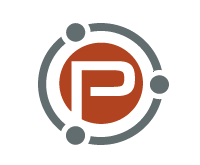“What About Google -1?” plus 1 more |  |
| Posted: 22 Nov 2011 12:01 PM PST This guest post is by Sriram Reddy of BloggingTipster.com. Allen: Billy, Why are you looking so gloomy? Did your Twitter follower count halve overnight? Hehe… Billy: No, I just had such a cheesy experience Googling for material for Prof. Dwyer’s assignment. There was an unusual amount of spam in the search results. I had such a hard time scanning through all those search results, but I finally found what I was really looking for. I wish there was a way I could shield others in the Internet community from visiting some of those sites I just visited—trust me, they were a sham. If only there was a way I could bury some of those results in Google’s SERPs. Tough luck that Google doesn’t give me an option to discourage my friends from clicking through such results. Black-hat SEOs slowly seem to be getting the better of Google search. Allen: Ahh, I agree Google’s hasn’t wiped out spam completely, but don't you worry: Google’s Panda algorithm is quite efficient in dealing with spammers. Even better, the recently launched Google +1 button is definitely going to add the human factor that Google’s page rank algorithm so gravely needs. It's a huge step towards removing spam. Billy: Hmm, yeah I must admit I love the idea of +1′ing something. It makes me feel more in control. I can't help but think of large outfits that are going to abuse the +1 by recommending their members to +1 their own site through personal profiles. While the +1 button will guide SERPs in the right direction, I wish Google would introduce a -1 button too, to neutralize the effect of gaming the +1 button by some publishers. The first thing I would do if Google released a -1 button, is -1 all the spammers on my research for Prof. Dwyer’s assignment. Trust me, I am so disheartened with my searches today. Allen: Whoa! A Google -1 button! Don't you think we have enough social buttons to deal with already? Billy: I firmly believe that if you had a bad encounter with a search result, then you need to tip off your friends and the world about it, so that they don't need to make the same mistake you made—if they choose to go by your recommendation, that is. You know what else I would love to see on a Google -1 button? Wen people -1 something, it would be good to see their -1 displayed publicly across Google’s search results as annotations on the content they -1'ed—just like the +1s show up in results. Let's take the example of the assignment that Prof. Dwyer gave us today. Everyone in the class will be searching for the same information on Google, and we will definitely all be coming across websites that are spam. If I wasn’t satisfied with a search result, I could simply click the -1 button. It would then show up on my friends’ search results that Billy -1′ed this. How cool would that be?! Since I had not liked the link, I'm sure most in our class wouldn’t waste their time on it. Allen: Ah, that reminds me, I’d better finish up with Prof. Dwyer’s assignment soon, or I’ll be looking at my second grounding in a week. Billy: Bah! For commonly searched terms the results by and large aren’t too bad. But for niche terms, I’ve noticed that I have to spend quite some time searching through affiliate links and aimless blogs before I find what I want. I’ve heard that one third of all search queries are first-time searches. Since Google is still improving its search algorithm for first-time queries, it would be their advantage to use the help of people like us to vote out spam. This makes a strong case for a Google -1 button. Allen: Maybe you’re pressing the Panic button a little too soon here. A -1 button would be worse than unleashing a fire-breathing dragon. It would open up websites to social attacks. Organizations will go berserk -1ing their rivals out of competition. This would have much more serious consequences than organizations just gaming the +1 button. This would be abused far more than the +1. No wonder Facebook hasn’t rolled out a Dislike option! Billy: I'm not sure if I would be too worried about publishers -1ing their rivals. Google is smart enough to handle such a situation. I’m sure it's not out of their reach. Just the way a +1ers identity will be tagged to his +1 recommendation, -1s could also be tagged to people’s profiles as well. An algorithm from Google to give higher relevance to -1s from certain profiles than others which have had a history of gaming buttons would definitely turn the tables in Google’s favor. Also, if a publisher has made a brand for himself online, even if a rival manages to mass -1 his content, how can we discount the publisher’s followers? They wouldn't want their favorite brand to be mass -1ed, would they? They wouldn’t hesitate to +1 to salvage their favorite brand. Reddit, Digg, and Google’s very own Youtube work on similar models. They pull the best content to the top of the pile through a mixture of positive and negative feedback, and they are pretty competent at it. We know Google’s capable of taking this to the next level. Allen: You are making sense, but I’m sure there are many companies out there that wouldn’t be comfortable with such a model. Especially small publishers. Billy: Yeah, there might be some resistance initially, but a -1 button will really do wonders for the Web. Imagine a universe where there is no spam at all in Google’s search results. What won’t we do to see a day like that! Most importantly, Google would be empowering people to choose what they want to see. If Google’s given me the option to decide what’s useful for my friends and the Web, then it should definitely give me an option to decide what’s bad as well. Allen: Hmm.. You are making sense now … but I’m still not so sure yet. Anyway, it’s getting late, I gotta go. Catch'ya tomorrow. …While the Google -1 button is still an idea that most of us fancy, this conversation between Billy and Allen was an attempt at seriously contemplating the Google -1 button. Who are Allen and Billy? Allen and Billy (and Prof. Dwyer) are characters that landed from my imagination, as I needed two characters through which I could put forth my views and counterviews on the Google -1 button. What do you think about the idea of a -1 button? I’d be interested to hear your thoughts in the comments. Sriram Reddy writes lock stock and barrel about sharpening blogging skills at www.BloggingTipster.com. Follow him on Twitter. Originally at: Blog Tips at ProBlogger |
| Posted: 22 Nov 2011 06:03 AM PST This guest post is by Dan Meyers of Your Life, Their Life. In general, most of our goals as bloggers center around becoming authorities on subjects—the kinds of authorities that others look to for advice. What’s the title that usually comes with this position? An “expert.” There are some clear advantages to the title “expert” that are worthy of our efforts. We can gain notoriety and traffic as we leverage our expertise to thoroughly educate everyone. In fact, most people make a career out of their expertise, whether it’s in their normal daily job or in the blog world. How can you become an expert?
Most successful bloggers have used the formula above, along with some other steps, to get to where they are today. “I don’t know how to do it” is never an acceptable answer for someone who is smart and ambitious enough to learn howto do it. Steps 1 and 2 will allow you to gain knowledge on a subject, but you really must take step three and just do it. It’s amazing how people start to view you differently when you have a blog on a subject. The instant credibility isn’t always deserved, but it’s a great way to kick-start your business. We can all become experts on a subject if we learn enough about it. However, there are some clear dangers in becoming an expert—mostly dangers to yourself. Expertise can bring with it an element of “all-knowingness” that begins to turn people off. When you think you know it all, you often refuse to open your mind to outside ideas. After all, even Einstein became so stuck in his ways that he wasn’t able to grasp the theory of quantum mechanics. He held fast to the theory of relativity that he created, and couldn’t see beyond it. Einstein wasn’t the only one stuck in his ways. In his book, Influence, the Psychology of Persuasion, Stephen Gatto explains, “Invention is the providence of youthful insight.” After we get stuck in our ways, it’s hard for our minds to continue to develop new ideas and adapt to new circumstances. As the saying goes, to the man with a hammer, every problem looks like a nail. How do you know if your expertise is harming you?
What’s the ultimate solution to this catch-22? You should strive to be seen as an expert to outsiders, but at the same time you must fight the urge to believe you’re an all-knowing expert. This is easier said than done, because the more knowledgeable we become on a subject, the less we listen to other opinions or ideas. How can we resist the urge to claim our expertise on a subject?
The keys to fighting the issues that come with expertise are continual education and an open mind. It also helps to realize what people say about experts! Stephen Gatto explains his view on expertise when he says, “(expertise) is a lie because the changing dynamics of time and situation and locality render expertise irrelevant and obsolete shortly after it is anointed.” It’s pretty scary to think as soon as you become an expert, you become irrelevant! Roseanne Barr said, “Experts say you should never hit your children in anger. When is a good time? When you’re feeling festive?” I bet this is the first time Roseanne was quoted on ProBlogger. Finally, Shunryu Suzuki said, “In the beginner’s mind there are many possibilities. In the expert’s mind there are few.” Don't let expertise limit you and your abilities. I worked at a large consulting firm for seven years, which taught me how to continually change my area of expertise and adapt with the changing times, as explained in the post, “You are a now a Consultant.” Do you consider yourself an expert on your subject? How do you prevent your expertise from crippling you? Dan Meyers started Your Life, Their Life to help you take control of your life. Read how he paid off $50,000 of debt in two years and how his strategies can help you. Originally at: Blog Tips at ProBlogger |
| You are subscribed to email updates from ProBlogger Blog Tips To stop receiving these emails, you may unsubscribe now. | Email delivery powered by Google |
| Google Inc., 20 West Kinzie, Chicago IL USA 60610 | |








.jpg)
0 comments:
Post a Comment